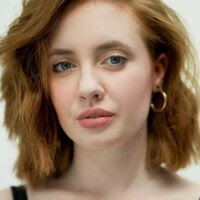 |
| The beautiful Hoess family garden with watchtower and other buildings in Auschwitz camp visible beyond the walls |
I recently saw this memorable film, The Zone of Interest,
 |
| Hedy and baby admiring the flowers |
 |
| The house, a luxury villa, with mature trees to screen the view of the crematorium |
 |
| Rudolf Hoess Admitted to killing 2 and a half million Jews in Auschwitz |
Rudolf, sentenced to prison for murder in his youth, is depicted as an efficient, high-level functionary totally committed to the cause of National Socialism; his single-minded devotion to Nazism has helped his swift rise through the ranks of the S.S. Hedwig loves gardening and especially her garden, but she also adores trying on her new, exceptionally beautiful, lush mink coat whose owner had gone up in smoke next-door. And she experiments happily with other booty; unknown perfumes in beautiful bottles and expensive lipsticks in golden cases. She knows she is lucky and screams angrily when a letter arrives which may send her husband to a promotion elsewhere. She is a kind mother and happy wife but says, conversationally to her maid,
 " " |
| Hedwig Hoess 1908-1989 |
The film score is by Mica Levi and it is sparse and at times chilling but always atmospheric. The film begins with a young, unknown Polish girl playing a simple melody. Because I had difficulty in understanding everything in the film with its dialogue in German, and the sub-titles displayed too briefly for me to catch everything, I searched online to find more and was not disappointed.
The Life of Joseph Wulf
 |
| Joseph Wulf 1908-1974 |
 |
| Polish girl playing Sunbeams in The Zone of Interest. |
Sunbeams,
radiant and warm,
Human bodies, young and old;
And who are imprisoned here,
Our hearts are not yet cold.
Joseph
Wulf, a German-Polish Jew born in Chemnitz in 1912 and raised in
Krakow, had a rabbinical education but trained as an agronomist. His
life changed utterly with the Nazi invasion when all the Jews of
Krakow were rounded up and restricted to life in the Ghetto where
life was overcrowded and harsh, although he did meet and made friends
there with poet and songwriter, Mordecai Geburtig and painter, Abraham
Neumann. Wulf eventually managed to escape and join the Resistance
but was captured in 1943 and deported as slave labour to
Buna-Monowitz, a sub-camp of Auschwitz. He vowed, if he survived, to
commit his life to exposing Nazi war crimes. Wulf fled a death march
in 1945 and spent the postwar years as a historian, chronicling,
among other subjects, the Holocaust and showing how Nazi ideology had
left its stamp on art. He also became a member of the Jewish
Historical Commission and a co-founder, in Paris, of the Centre for
the History of Polish Jews. He helped preserve the work of the
already famous Gebirtig, and a lesser known composer, Jakub
Weingarten, and made home recordings of his own songs, Sunbeams, and a sentimental song about his wife.
The execution of Rudolf Hoess
for war crimes
in 19\46.
 |
| One of Joseph's many publications. |
“I have published 18 books about the Third Reich and they have had no effect. You can document everything to death for the Germans. There can be the most democratic government in Bonn but the mass murderers walk around free, live in their little houses and grow flowers.”
It is a tiny but fitting tribute to Wulf that this much-acclaimed film is introduced by his words, music and voice which serve as a testimony to a life lived in some pain.
Postscript
Bret Werb, staff musicologist of the U.S Holocaust Memorial Museum in Washington, in 2002 came across the existence of recordings Wulf had made, in a dissertation footnote. Contacting the author, he discovered that the information had come from a documentary by German journalist, Henryk Broder who had Wulf’s actual tapes. Apparently, Wulf had organised community singing with other labourers in the camps with songs memorised but not written down. He recorded Hasidic melodies and songs by Geburtig and Weingarten between 1966 and 1967 in a West Berlin theatre, accompanied by Friedrich Schulz on piano. In July 2021, Bridget Samuels the music supervisor of The Zone of Interest contacted Werb looking for a piece of historical music, if possible, from Auschwitz and in Yiddish. Wulf’s little recording was the only possible candidate, most songs from the camps being in Polish. His music, played on the piano by a Polish girl, juxtaposed next to scenes of the Hoess family plundering desirable belongings of dead Jews, is portrayed as an expression of hope and spiritual resistance.
 |
| An historically interesting photograph of Richard Baer, Josef Mengele and Rudolf Hoess. All did their share of trying to achieve the Nazi Final Solution. |
“We who are imprisoned here …
Are wakeful as the stars at night.
Souls afire, like the blazing sun
tearing, breaking through their pain
for soon we’ll see that waving flag,
the flag for freedom yet to come.”




















